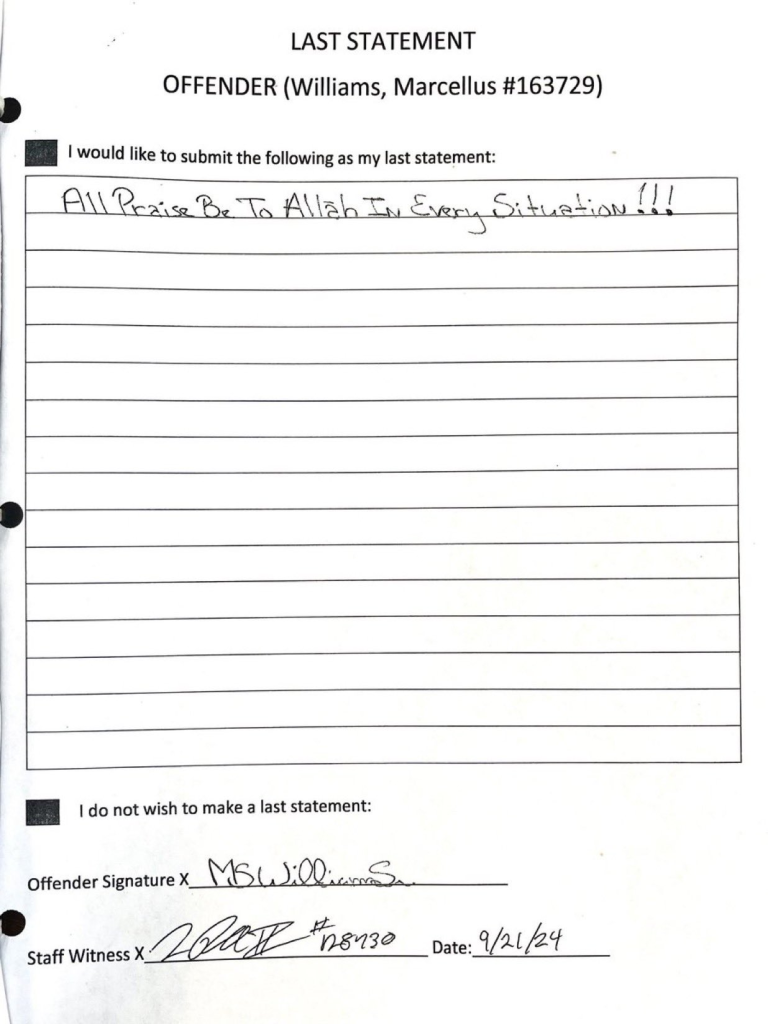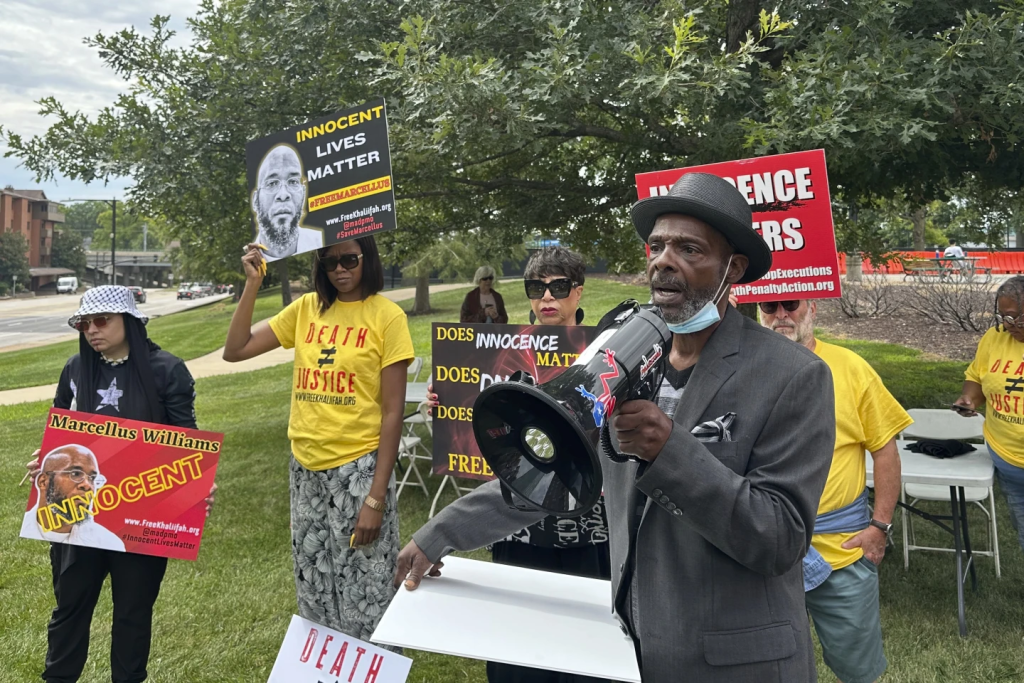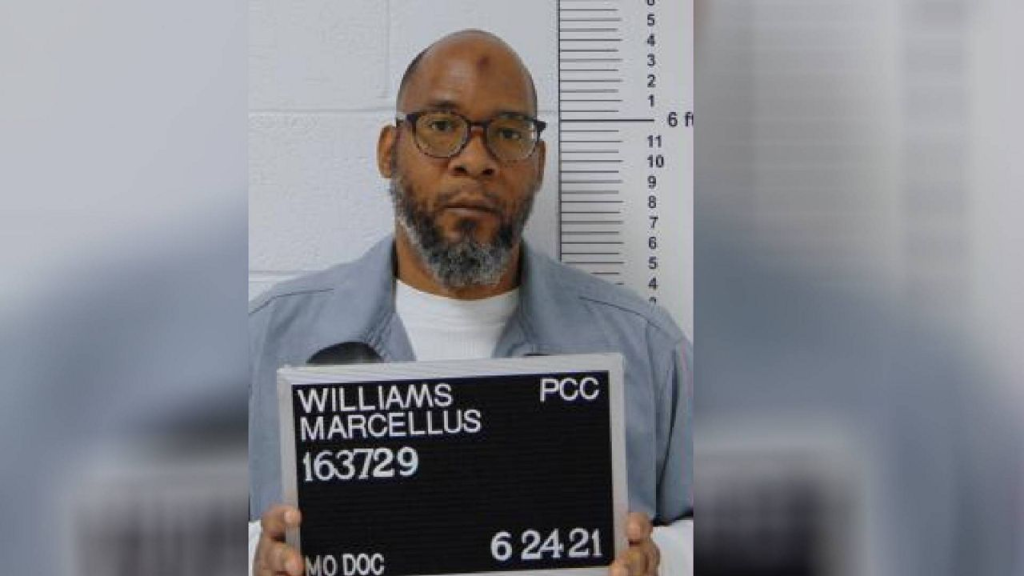The Crime and Conviction: Marcellus Williams’ Case
In 1998, Lisha Gayle, a former journalist turned social worker, was brutally murdered in her home in University City, Missouri. Williams was convicted of breaking into Gayle’s home and stabbing her 43 times during a robbery. Key evidence in the Marcellus Williams case included testimony from his then-girlfriend and a jailhouse informant, both of whom claimed Williams had confessed. However, there was no direct DNA evidence linking him to the crime scene.

Williams was sentenced to death in 2001, but the case soon became mired in controversy due to concerns over racial bias, jury selection, and potentially mishandled evidence. Only one Black juror was included in his trial, and Williams‘ defense argued that racial bias influenced the proceedings, particularly in how the prosecutor struck Black jurors from the pool.
Legal Battles and Execution Delays
The Marcellus Williams case had numerous legal twists and turns. In 2015 and again in 2017, Williams’ execution was halted due to emerging questions about DNA evidence. Notably, the knife used to stab Gayle contained DNA from an unidentified male, but not Williams. His defense, supported by the Midwest Innocence Project, argued that this DNA evidence should exonerate him.
St. Louis County Prosecuting Attorney Wesley Bell agreed, calling for Williams‘ death sentence to be commuted to life in prison. Gayle’s family also supported this effort, stating that executing Williams would not bring them closure. Despite these calls, Missouri Governor Mike Parson denied clemency, asserting that no court had found Williams’ innocence claim credible.

Final Efforts and Supreme Court Denial
In the weeks leading up to his execution, Williams‘ legal team sought intervention from the U.S. Supreme Court, arguing that his trial was compromised by procedural errors, racial bias, and tainted evidence. These last-ditch efforts failed when the Supreme Court declined to intervene just hours before Williams was put to death by lethal injection at the Eastern Reception, Diagnostic, and Correctional Center in Bonne Terre, Missouri.

Before his execution, Williams issued a brief written statement: “All Praise Be to Allah In Every Situation!!!” He was pronounced dead at 6:10 p.m. on September 24, 2024.
Is Marcellus Williams Alive?
Following his execution, many have continued to ask: Is Marcellus Williams alive? The answer, tragically, is no. Despite multiple stays, legal challenges, and a widespread belief among his supporters that he was innocent, Williams was executed by the state of Missouri.
Missouri’s Controversial Execution Stance
Williams’ execution marks the third in Missouri this year and the 100th since the state resumed the death penalty in 1989. The Marcellus Williams case has become emblematic of the complex moral and legal questions surrounding capital punishment, especially in cases where evidence and testimony are questioned. Critics, including the NAACP, labeled Williams‘ execution a grave injustice, with NAACP President Derrick Johnson declaring that “Missouri lynched another innocent Black man.”
The handling of Williams‘ case is also seen as part of a larger pattern of questionable death penalty practices. The fact that Williams was one of five death row inmates across multiple states scheduled for execution within a week defies the recent national trend toward reduced use of capital punishment.

The Aftermath
Williams’ death has left unresolved questions about his guilt, the fairness of his trial, and the broader implications for the criminal justice system. The Marcellus Williams update raises concerns about the use of the death penalty in cases with lingering doubts, particularly where racial bias and mishandling of evidence are alleged.
While Governor Parson and the Missouri Supreme Court have stood by the conviction and execution, the case continues to fuel ongoing debates about justice, race, and capital punishment in America.


